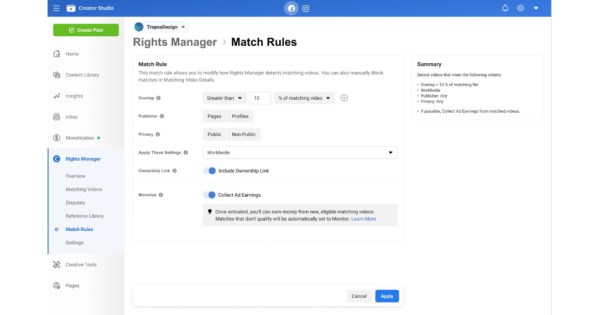Cryptocurrency has always been about freedom from banks, borders, or red tape. So it is no surprise that one of the hottest conversations in the digital asset space is now around “no KYC crypto casinos.” You can now deposit, play, and withdraw using cryptocurrencies. There is no need to go through “Know Your Customer” checks. Forget about ID uploads, selfies with your passport, or waiting days for approval. Just connect a wallet, drop some coins, and you are in.
That is just great for players who want privacy and instant access. Beyond the hype, there is a bigger picture — the ripple effect on altcoins and on payment system tokens designed for speed and low-cost transfers. Let’s dig deeper.
Why No KYC Casinos Are Exploding in Popularity
Most people do not like filling out forms. Traditional online casinos require identity verification. You need to get passport scans, proof of address, or maybe even video calls. For privacy-focused crypto users, that feels totally backwards. No-KYC casino at 1wincryptocasino.net cuts that and offersThe Impact of No KYC Crypto Casinos on the Dynamics of Altcoins and Payment System Tokensa whole pack of benefits:
- Privacy-first culture — Many crypto players value anonymity.
- Instant onboarding — You can start playing within minutes.
- Global reach — Players from countries with strict gambling restrictions can access platforms without local roadblocks.
- Altcoin support — Many accept not just Bitcoin or Ethereum but a whole basket of smaller tokens.
Bitcoin may dominate headlines. However, it is not always the most practical currency for fast-paced online gaming. This is where altcoins come into the game. Consider Litecoin, Dogecoin, Dash, or even niche coins that offer faster speeds and lower fees. For players who want quick deposits and withdrawals, these often outshine Bitcoin:
- They are more flexible — Smaller casinos can easily integrate multiple tokens to attract more users.
- They encourage experimentation — Gamers are often more willing to try a new altcoin if it is supported on their favorite casino platform.
- They improve liquidity — More players use an altcoin for real transactions. As a result, trading volumes increase. This creates healthier markets.
Payment System Tokens: Built for This
Alongside altcoins, we have payment system tokens. These are cryptocurrencies engineered to be the rails of digital transactions. Think Ripple (XRP), Stellar (XLM), Tron (TRX), or even newer tokens built for DeFi and cross-border payments. These thrive in casino ecosystems:
- Low fees make microtransactions viable — Nobody wants to pay $5 in gas fees to place a $10 bet.
- Fast settlement keeps players engaged — Instant deposits mean instant play, and quick withdrawals build trust.
- Stable performance is attractive — Tokens designed for payment efficiency often have more predictable transaction times compared to high-demand chains like Ethereum.
In short, no-KYC casinos give payment system tokens a real-world use case outside of speculation. It is something the crypto market has always needed.
Shifting Market Dynamics
The rise of these platforms changes the game for how tokens are perceived and valued. Here is how that works and what we can expect in the future.
Increased Utility Means Increased Value
Tokens that work well in gambling contexts suddenly see spikes in adoption. This utility-driven demand can boost prices and create new liquidity pools.
Altcoin Rotation
Players often move between tokens depending on fees, speed, and casino support. This constant rotation influences short-term altcoin performance. This makes certain tokens “hot” for weeks at a time.
Greater Exposure for Niche Coins
For some altcoins, being accepted at even a few casinos gives them more visibility than being listed on a mid-tier exchange. Casinos become adoption gateways.
Cross-Chain Competition
Payment tokens built on faster, cheaper chains start competing directly. TRX vs. XLM vs. BNB Smart Chain tokens. Casinos are a testing ground for which chain delivers the smoothest experience.
The Regulatory Wildcard
Of course, this all comes with a catch. Governments and regulators do not love the idea of anonymous gambling. KYC and anti-money laundering rules exist for a reason. They are to prevent crime, fraud, and money laundering.
The lack of KYC makes these platforms attractive not only to privacy-conscious players but also to bad actors. If regulators crack down hard, some casinos may vanish overnight. Thus, the tokens tied to them could see sudden dips in use. Still, crypto has always thrived in gray zones. Just as decentralized finance found ways to flourish without banks, no-KYC casinos may adapt with partial solutions. These may be light KYC for large withdrawals, geofencing, or on-chain monitoring tools.
The popularity of no-KYC casinos highlights that utility and freedom matter more than compliance for many users. While traditional finance leans on regulations to build trust, crypto builds trust through code, speed, and user experience. For altcoins, this means survival of the fittest. Coins that can prove their worth in real-world, high-volume environments will stick around.
Looking Ahead
No-KYC crypto casinos are more than just a niche trend in online gambling. They are reshaping how altcoins and payment system tokens are used. As governments push harder for compliance, the balance between freedom and oversight will determine whether this space keeps growing or faces roadblocks.
But one thing is clear. In the ongoing story of digital assets, no-KYC casinos are an important chapter. They remind us that crypto’s strength is not just in speculation. It is in utility. And for altcoins and payment tokens, that utility might just come from the roulette wheel as much as the blockchain.












